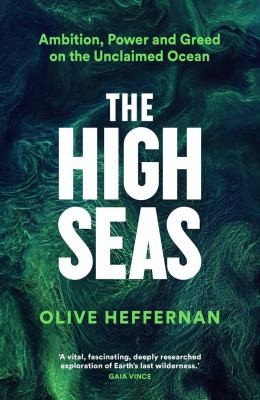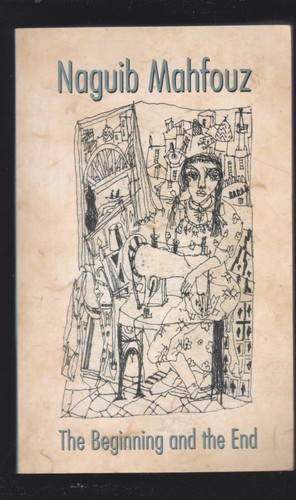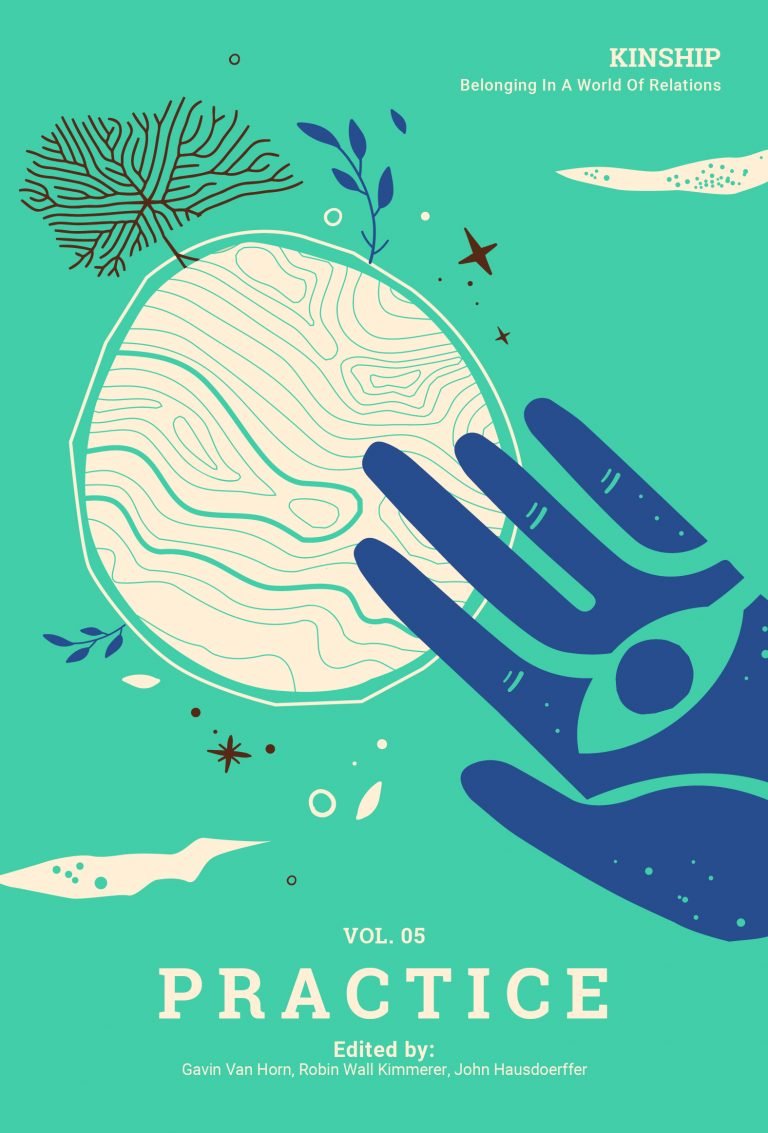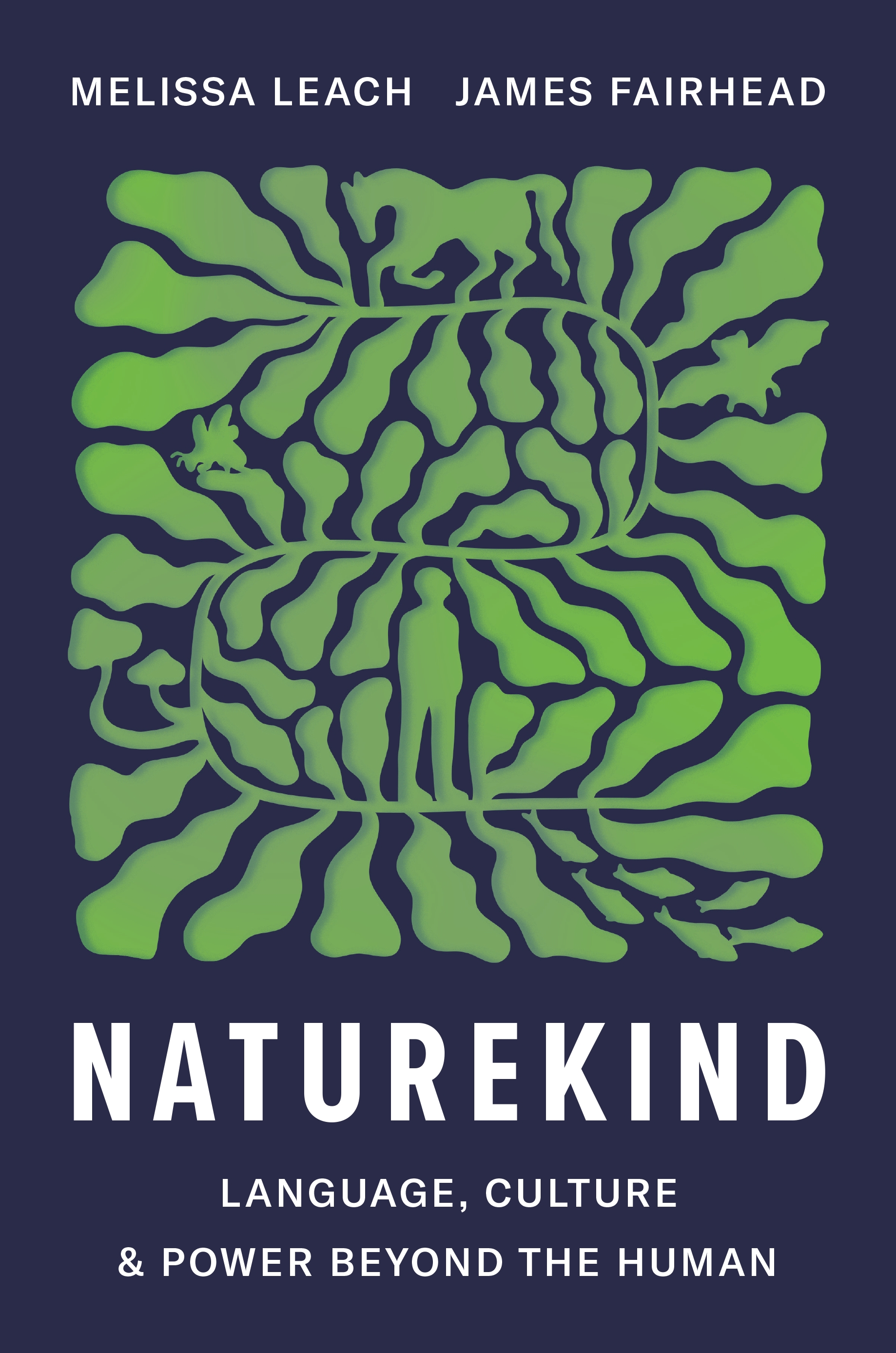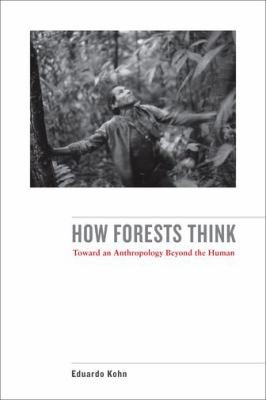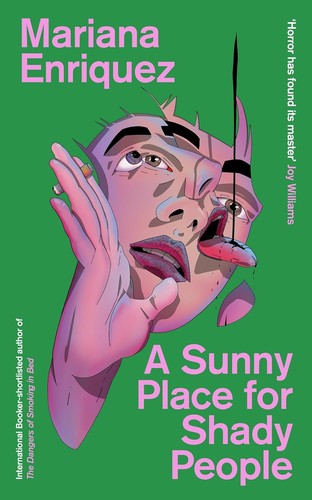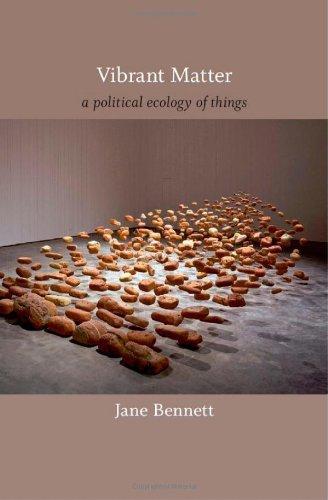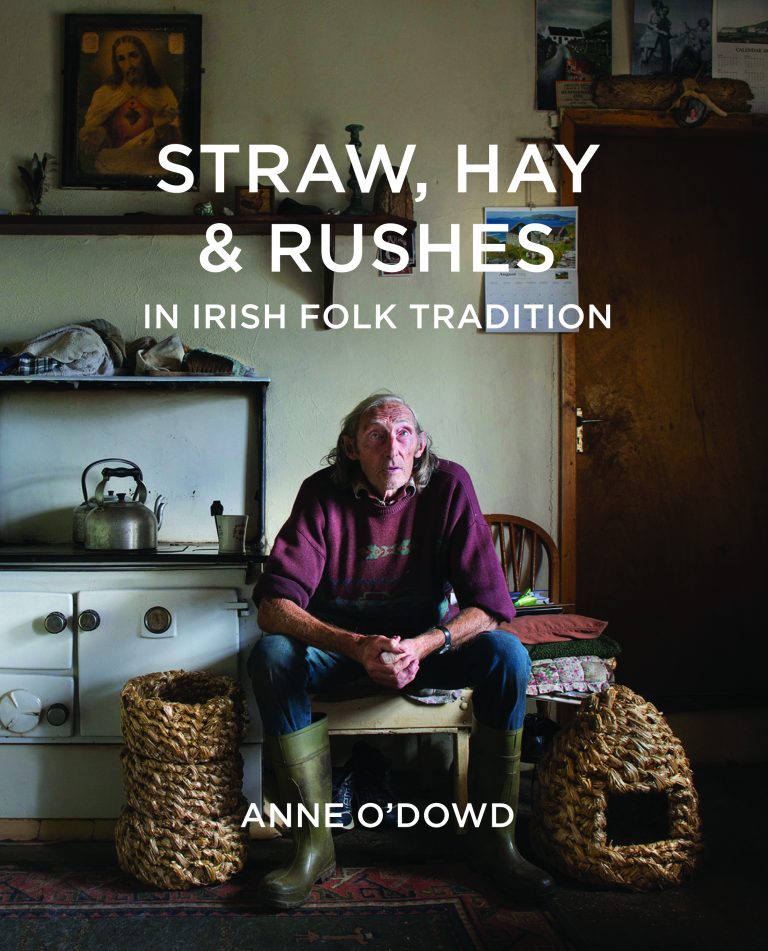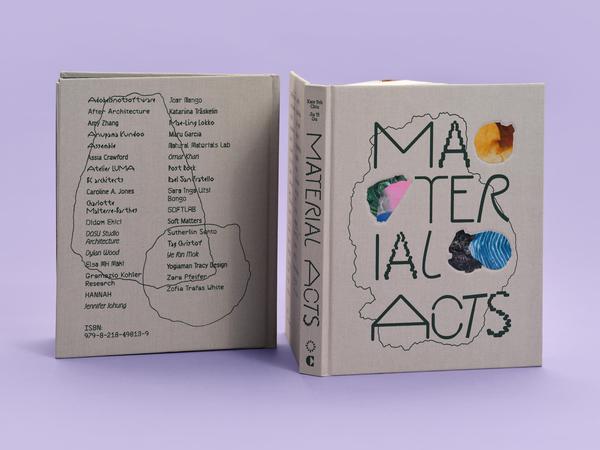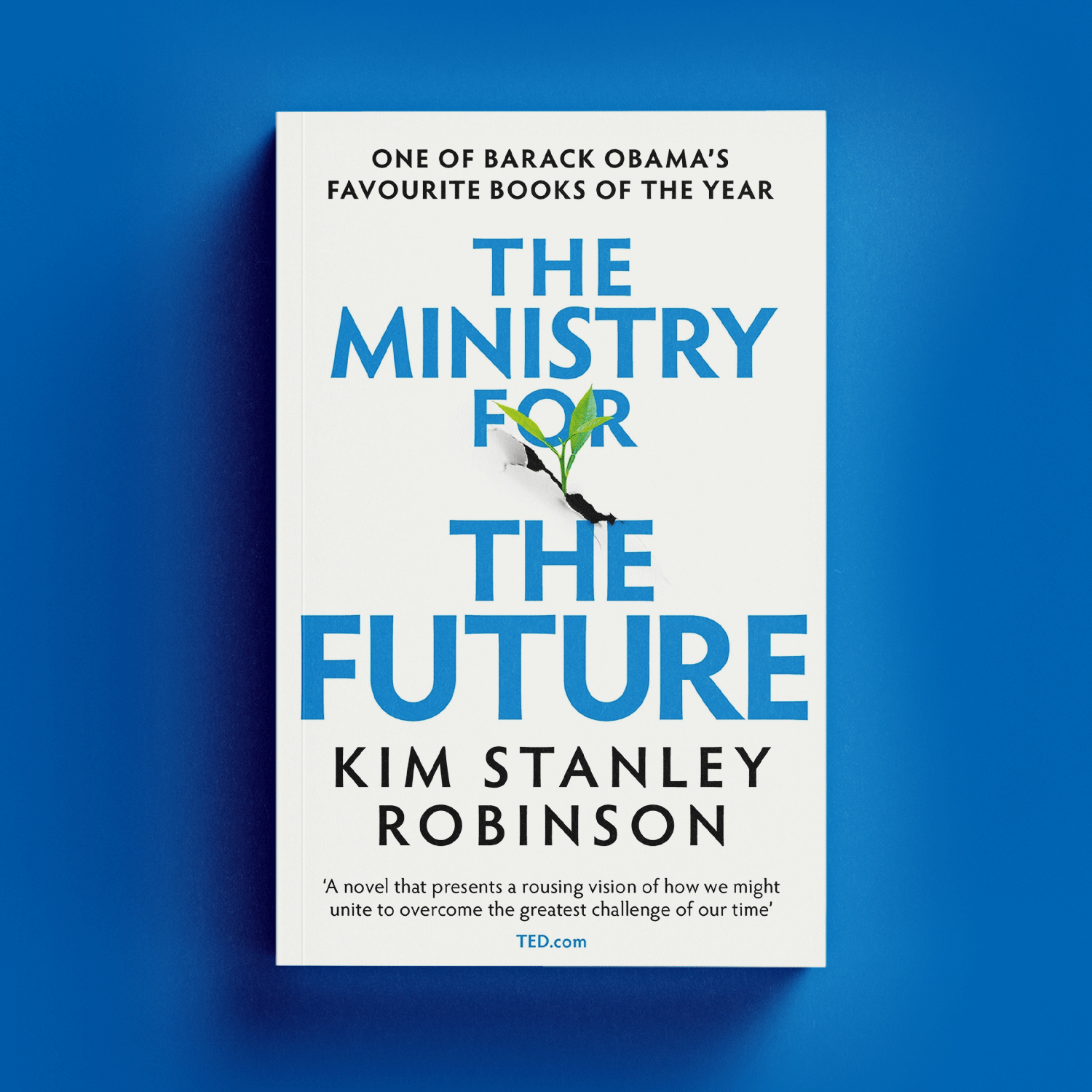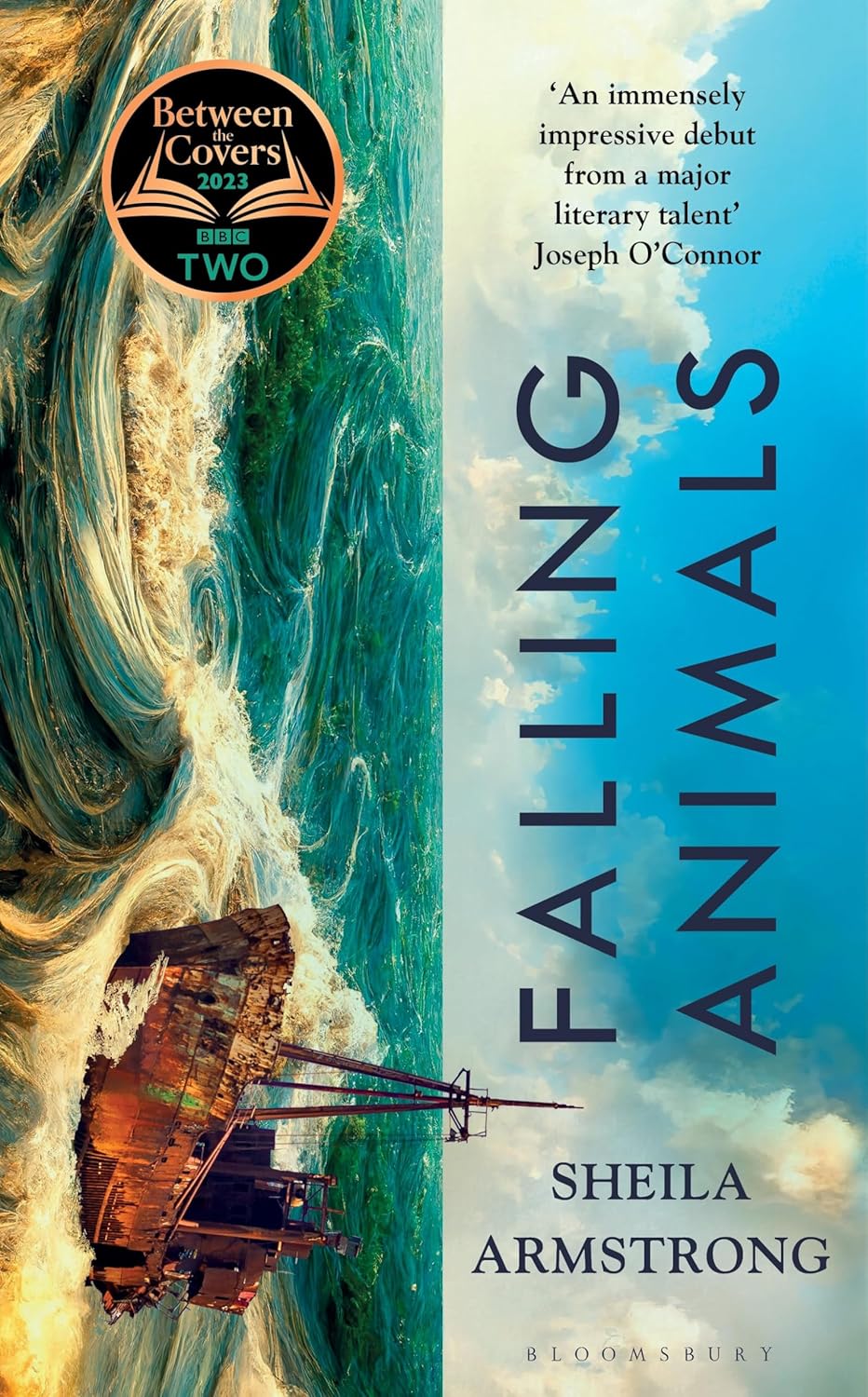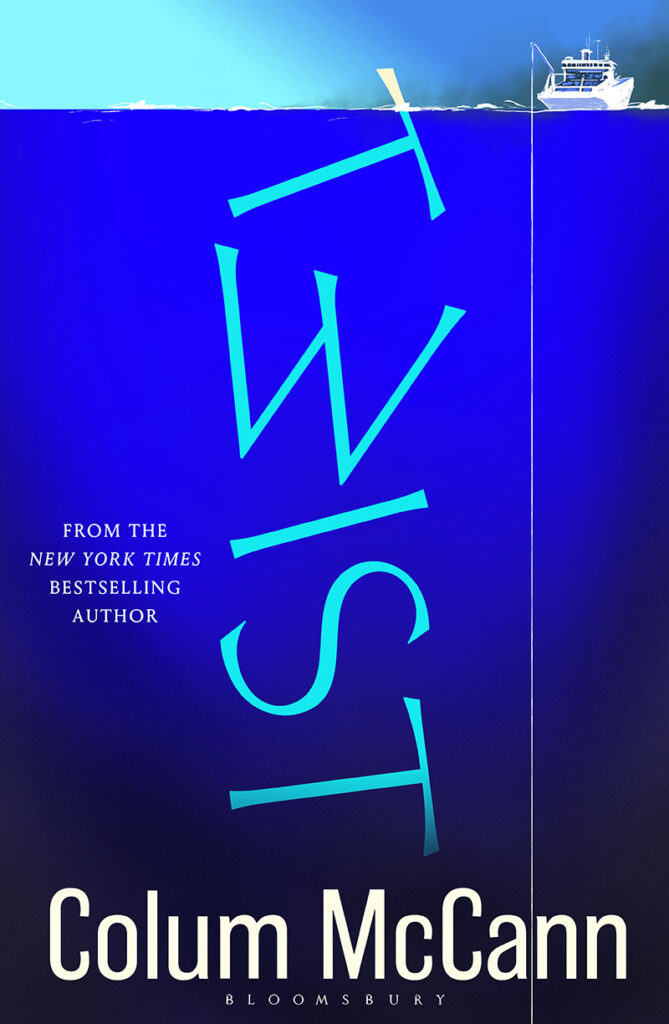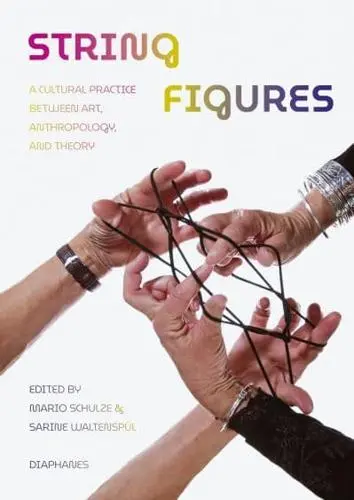I found this in a very nice second hand bookshop and had wanted to read Mahfouz for a while, thinking I had never read his work. I later remembered that I had read Miramar years ago. I left this one on the shelf for a while, but picked it up when I wanted a novel recently.
Reviews and Comments
I arrange things into artworks, including paint, wood, plastic, raspberry pi, people, words, dialogues, arduino, sensors, web tech, light and code.
I use words other people have written to help guide these projects, so I read as often as I can. Most of what I read is literature (fiction) or nonfiction on philosophy, art theory, ethics and technology.
Also on Mastodon.
This link opens in a pop-up window
Fionnáin started reading The Beginning and the End by Naguib Mahfouz
Fionnáin started reading Practice by Robin Wall Kimmerer (Kinship: Belonging In A World Of Relations, #5)
Finally getting around to the last of this 5-part volume, on practice of kinship. I brought this because I'm on a train today and it's pocket-sized!
Finally getting around to the last of this 5-part volume, on practice of kinship. I brought this because I'm on a train today and it's pocket-sized!
Fionnáin wants to read Naturekind by Melissa Leach
Thoughtful but confused
2 stars
How Forests Think tries to present an anthropology beyond the human. It situates itself in writer Eduardo Kohn's years spent among the Runa in Ecuador. The Runa have close linguistic and cultural relationships with the forest creatures and plants surrounding them in the rainforest. Kohn posits that we can learn a more-than-human way of doing anthropology by learning to listen to these relationships.
Although the context is fascinating, and the methodology is urgent, I felt the book never really justified its many claims to be creating an anthropology beyond the human. It still felt for a large part as the voice of a western observer in a non-western culture, and while this is the truth it also feels like maybe it can never work without some other level of collaboration. The writing is also very heavy and does not flow, even though there are poetic moments at the beginning …
How Forests Think tries to present an anthropology beyond the human. It situates itself in writer Eduardo Kohn's years spent among the Runa in Ecuador. The Runa have close linguistic and cultural relationships with the forest creatures and plants surrounding them in the rainforest. Kohn posits that we can learn a more-than-human way of doing anthropology by learning to listen to these relationships.
Although the context is fascinating, and the methodology is urgent, I felt the book never really justified its many claims to be creating an anthropology beyond the human. It still felt for a large part as the voice of a western observer in a non-western culture, and while this is the truth it also feels like maybe it can never work without some other level of collaboration. The writing is also very heavy and does not flow, even though there are poetic moments at the beginning of each chapter. I kept hoping it would unlock something but it kept feeling empty and contradictory, never quite confirming or even properly presenting how the methodology could really work.
The central argument is that semiotics (signs) constitute 'thinking' and that by understanding the complexity of signs means that animals can think as well as humans. Although anecdotal attempts are made to show this, such as how a monkey can understand danger from the creaking of a tree, it is not really well argued. Although it is worth mentioning that authors who have built on Kohn's work like Michael Marder or Anna Lowenhaupt Tsing have managed to show this later, with stronger writing and justification, so this remains an important if imperfect work.
Eduardo Kohn has been praised for trying something new here, and rightly so, yet it too often is either confused or obfuscated, and the end result is a book of interesting moments, mostly those where the Runa take centre stage, but these moments are too few.
Fionnáin reviewed A Sunny Place for Shady People by Mariana Enriquez
Haunting ghost stories
5 stars
I read Things We Lost in the Fire, Mariana Enriquez' collection of short stories translated into English not long after it came out in 2017, having found it in a library and taken a chance on it. The visceral and beautifully written horror stories astounded me. And the way that she embeds political and social critique is pitch perfect. After such a brilliant debut I worried that a second book might prove to be a repetition or just nowhere near the same quality. I haven't yet read the lauded The Dangers of Smoking in Bed (her debut in Spanish but second collection translated to English), but this, her third, certainly did not disappoint me.
A Sunny Place for Shady People is literary horror. Across 12 short stories, very few events of any great drama takes place, but strong characters and realistic settings bring everything to life. In each …
I read Things We Lost in the Fire, Mariana Enriquez' collection of short stories translated into English not long after it came out in 2017, having found it in a library and taken a chance on it. The visceral and beautifully written horror stories astounded me. And the way that she embeds political and social critique is pitch perfect. After such a brilliant debut I worried that a second book might prove to be a repetition or just nowhere near the same quality. I haven't yet read the lauded The Dangers of Smoking in Bed (her debut in Spanish but second collection translated to English), but this, her third, certainly did not disappoint me.
A Sunny Place for Shady People is literary horror. Across 12 short stories, very few events of any great drama takes place, but strong characters and realistic settings bring everything to life. In each story there is a creeping dread or an uncanny unease that grows page by page. In a way, the unease is a little like peeking repeatedly into something private, and this is partly because the stories situate themselves mainly in Argentinian urban and suburban areas, with intimate characters mostly speaking from the first person.
Some moments will continue to haunt me: A character whose face disappears, an accident inside a fridge and a violent terror in a burned out ruin are among the most visceral images. This collection is again brilliant, and Enriquez has cemented her place as one of my favourite short story writers.
Fionnáin wants to read Vibrant Matter by Jane Bennett
Fionnáin started reading Straw, hay & rushes in irish folk tradition by Anne O'Dowd
I spotted this in the museum of country life bookshop during a visit and ordered a copy on inter-library loan into my library. I then forgot all about it and the day before the copy arrived, a friend loaned me a copy of the book on a whim saying I'd like it. Nice synchronicity, so I've started reading both copies.
I spotted this in the museum of country life bookshop during a visit and ordered a copy on inter-library loan into my library. I then forgot all about it and the day before the copy arrived, a friend loaned me a copy of the book on a whim saying I'd like it. Nice synchronicity, so I've started reading both copies.
Fionnáin started reading Material Acts by Kate Yeh Chiu
A gift last year from my brother after he attended this exhibition in LA, that I'm just getting around to now.
A gift last year from my brother after he attended this exhibition in LA, that I'm just getting around to now.
Fionnáin started reading Ministry for the Future by Kim Stanley Robinson
My sister gave this to me for Christmas a few years ago. In truth I rarely enjoy science fiction so I've kept putting off reading this, but have decided to at least have a go at it.
My sister gave this to me for Christmas a few years ago. In truth I rarely enjoy science fiction so I've kept putting off reading this, but have decided to at least have a go at it.
Fionnáin started reading A Sunny Place for Shady People by Mariana Enriquez
I bought this with the end of a gift voucher I received from a friend. I loved Enriquez' debut collection of short stories, Things We Lost in the Fire, and was delighted to find this one on the book shelves. Also, it's an appropriate time to read some horror stories!
I bought this with the end of a gift voucher I received from a friend. I loved Enriquez' debut collection of short stories, Things We Lost in the Fire, and was delighted to find this one on the book shelves. Also, it's an appropriate time to read some horror stories!
Fionnáin reviewed Falling Animals by Sheila Armstrong
Treading shallow water
2 stars
Sheila Armstrong's debut novel is about a real-life mystery. A John Doe was found in 2009 sitting calmly on Rosses Point beach in Sligo, Ireland. Tracing his family or identity took years, and this novel takes on this strange and sad story.
Each chapter is written from a different person's perspective: those who found the body, investigated its mystery, and those who were on a boat that crashed ashore in the 1990s. Introducing a new character every chapter is a brave approach that could suit this tale of a village and a body, but the execution is a little clunky. Each person is given a back-story including very obvious moments of trauma or trial that alter their lives in very literal ways. Human beings aren't usually like this, and the result ends up feeling like an exercise in writing lots of characters for a play or television, without producing …
Sheila Armstrong's debut novel is about a real-life mystery. A John Doe was found in 2009 sitting calmly on Rosses Point beach in Sligo, Ireland. Tracing his family or identity took years, and this novel takes on this strange and sad story.
Each chapter is written from a different person's perspective: those who found the body, investigated its mystery, and those who were on a boat that crashed ashore in the 1990s. Introducing a new character every chapter is a brave approach that could suit this tale of a village and a body, but the execution is a little clunky. Each person is given a back-story including very obvious moments of trauma or trial that alter their lives in very literal ways. Human beings aren't usually like this, and the result ends up feeling like an exercise in writing lots of characters for a play or television, without producing any heart or story in between. Some of the writing, too, is repetitive and clumsy, for example the word 'foreign' pops up to describe non-Irish things far too often.
A couple of the chapters are brilliant, particularly the ones that begin each section of the book, and they are standalone as striking short stories. The potential to go deeper hangs temptingly there, but in the end the story stays in the shallow waters it begins in.
Fionnáin reviewed Twist: a Novel by Colum McCann
The cables that bind us
3 stars
Colum McCann has no fear of taking on novels that involve years of research. Previous works Let The Great World Spin and Apeirogon manage to tie together many fragmented stories and characters into a coherent whole. In Twist, McCann takes a different approach: an insular first-person narrative in a story about subsea cables and the internet.
The first half of the book works very well. Our protagonist, Anthony Fennell, is a writer recovering from past addiction issues. He has been commissioned to write an article for a magazine about subsea cable repair, and gains a berth on a cable repair ship after a major break in a cable off Ghana. He is an unreliable narrator, becoming obsessed with the lead cable repair technician and his love, an actress who is working in England on tour. While at sea, his addictions resurface, not in substance abuse but in data …
Colum McCann has no fear of taking on novels that involve years of research. Previous works Let The Great World Spin and Apeirogon manage to tie together many fragmented stories and characters into a coherent whole. In Twist, McCann takes a different approach: an insular first-person narrative in a story about subsea cables and the internet.
The first half of the book works very well. Our protagonist, Anthony Fennell, is a writer recovering from past addiction issues. He has been commissioned to write an article for a magazine about subsea cable repair, and gains a berth on a cable repair ship after a major break in a cable off Ghana. He is an unreliable narrator, becoming obsessed with the lead cable repair technician and his love, an actress who is working in England on tour. While at sea, his addictions resurface, not in substance abuse but in data abuse. He becomes obsessed with his moments of internet access and the fragments he pieces together into intrigue, scandal and paranoia. As they search the ocean floor for a cable the width of a drainpipe, the story becomes brilliantly claustrophobic, manic, and desperate.
The second half of the book drops off, and becomes a bit too fantastical. Fennell is not a likeable narrator. His obsession with other peoples' more interesting lives is a good narrative device for the disconnection and individualisation that McCann has decided to write about, but it never really feels true enough and he wraps up his assumptions a bit too easily. For an author who thrives in writing multiple narratives simultaneously, trying to hold it all in one narrator's voice doesn't seem to work as well, particularly when the story becomes mostly speculative. It is a good experiment, and with McCann's sharp style and prose it remains enjoyable, but the result lacks the impact it might have had.
Fionnáin reviewed Flights by Olga Tokarczuk
A story from the perspective of travel
5 stars
Flights is a story where the protagonist seems to be travel itself. Billed as a novel, the book is split into many short chapters, some only a paragraph long, some many pages. Each chapter visits a specific moment of travel, or some part of the books other linked themes: preservation of bodies, colonialism and hierarchy, or disconnection and disregard of women.
I adore Olga Tokarczuk's writing. Her understanding of the craft and her breadth of imagination are a wonder, and her worldview is so respectfully and carefully entangled in her books that she is one of very few authors I read who can open new worlds in her works. So many moments of this book will stay with me. She builds worlds in moments and then discards them just as rapidly, as if all the stories were constructed out the window of an airplane leaving the runway. Her observations …
Flights is a story where the protagonist seems to be travel itself. Billed as a novel, the book is split into many short chapters, some only a paragraph long, some many pages. Each chapter visits a specific moment of travel, or some part of the books other linked themes: preservation of bodies, colonialism and hierarchy, or disconnection and disregard of women.
I adore Olga Tokarczuk's writing. Her understanding of the craft and her breadth of imagination are a wonder, and her worldview is so respectfully and carefully entangled in her books that she is one of very few authors I read who can open new worlds in her works. So many moments of this book will stay with me. She builds worlds in moments and then discards them just as rapidly, as if all the stories were constructed out the window of an airplane leaving the runway. Her observations on travel feel like a post-air-travel epithet, recording for future generations what it was once like to fly in airplanes around a world that came to feel so small.
The book is a marvel for all of its small moments and its clever way of putting travel at the centre of a story. At times I felt it a little jarring to leap from one story to the next, although that is clearly the intention of a book written in such an experimental format. On the whole, this is another masterpiece by one of the best living authors in the world.
Fionnáin reviewed String Figures by Mario Schulze
A beautiful, coherent tangle
5 stars
String figures are temporary artworks made from string, very often known in the western world through the associated children's game 'cat's cradle'. They are a storytelling device, using shapes made from string. Their potential was recently popularised by philosopher Donna Haraway, but their history stretches back centuries and they are still found in almost every country in the world, albeit less common than they may have once been in many cultures. In the early 20th Century, film, photographs and the actual string figures were collected from many places featured in this book, including the Solomon Islands, Nigeria, Brazil and Greenland. These artefacts were collated by western anthropologists for European museums, one colonial hand recording their history while the other erased it.
This book, String Figures, is the research result of an exhibition held in Switzerland in 2024. It combines essays by anthropologists, artists, and other researchers to form …
String figures are temporary artworks made from string, very often known in the western world through the associated children's game 'cat's cradle'. They are a storytelling device, using shapes made from string. Their potential was recently popularised by philosopher Donna Haraway, but their history stretches back centuries and they are still found in almost every country in the world, albeit less common than they may have once been in many cultures. In the early 20th Century, film, photographs and the actual string figures were collected from many places featured in this book, including the Solomon Islands, Nigeria, Brazil and Greenland. These artefacts were collated by western anthropologists for European museums, one colonial hand recording their history while the other erased it.
This book, String Figures, is the research result of an exhibition held in Switzerland in 2024. It combines essays by anthropologists, artists, and other researchers to form a wonderful, broad and coherent history of the artform and a contemporary reflection on it. The book is split into sections: first, a research exploration of string figures including essays on artistic history, mathematical theory and anthropology. The second section features contemporary artist approaches and reflections on the String Figures exhibition, with some high quality photographs. Finally, a series of shorter essays gives some perspectives on string figures today.
The quality of the editing by Mario Schulze and Sarine Waltenspul throughout is exceptional, and the writing and depth in each essay matches this. Every chapter has something to grab hold of, whether it is another piece of the complex history of string figures, or a personal reflection on how they are made, or a deeper dive into colonial exploitation through museum culture. The result is one of the finest research books I have read on a single topic, and a beautifully in-depth look at an often disregarded artform. As always, there were a couple of essays that were a little forgettable, but none that were of low quality. With so many perspectives and ideas, the book could have been a messy knot, but the result is a beautiful mesh of opinions, perspectives and research that is a joy to read.

